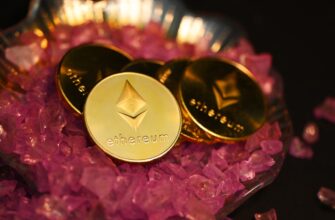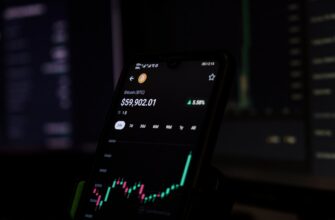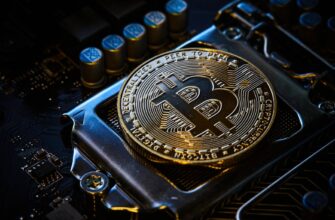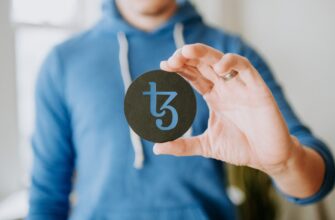## Introduction
Cryptocurrency kiosks are revolutionizing how people access digital assets, offering physical locations to buy and sell Bitcoin and other cryptocurrencies with cash or cards. As crypto adoption surges, these machines—often called Bitcoin ATMs—provide a tangible bridge between traditional finance and blockchain technology. This guide explores how cryptocurrency kiosks work, their benefits, security features, and what the future holds for this rapidly growing industry.
## What is a Cryptocurrency Kiosk?
A cryptocurrency kiosk is a self-service terminal enabling users to:
– Purchase crypto using cash, debit cards, or credit cards
– Sell crypto for fiat currency (in select machines)
– Transfer digital assets to personal wallets
Unlike online exchanges, kiosks offer immediate transactions without lengthy verification processes for small amounts. They support major cryptocurrencies like Bitcoin (BTC), Ethereum (ETH), and Litecoin (LTC), with over 38,000 units operational globally as of 2023.
## How Cryptocurrency Kiosks Work: Step-by-Step
1. **Identity Verification**:
– Scan government ID for larger transactions (KYC compliance)
– Provide phone number for SMS verification
2. **Select Transaction Type**:
– Choose ‘Buy’ or ‘Sell’
– Pick cryptocurrency (e.g., BTC, ETH)
3. **Enter Details**:
– For purchases: Insert cash or swipe card
– For sales: Send crypto to displayed wallet address
4. **Wallet Integration**:
– Scan QR code from your digital wallet
– Or receive paper wallet with private keys
5. **Confirmation**:
– Review transaction fees and exchange rates
– Approve transfer
Transactions complete in under 10 minutes, with crypto appearing in your wallet instantly.
## Top 5 Benefits of Using Crypto Kiosks
1. **Instant Access**: Bypass bank transfers and exchange delays
2. **Financial Inclusion**: Serve unbanked populations via cash transactions
3. **User-Friendly Interface**: Simple touchscreen operations
4. **Enhanced Privacy**: Minimal personal data required for small transactions
5. **Physical Security**: Tamper-proof designs with surveillance integration
## Where to Find Cryptocurrency Kiosks
Locations span high-traffic public spaces:
– Airports (e.g., Miami International, Singapore Changi)
– Shopping malls
– Convenience stores (7-Eleven, Circle K)
– Gas stations
– University campuses
Use tracking tools like CoinATMRadar or operator apps (CoinFlip, Bitcoin Depot) to find kiosks near you. Major operators include:
| Operator | Global Kiosks | Key Features |
|———-|—————|————–|
| CoinFlip | 4,500+ | 24/7 support, 200+ crypto options |
| Bitcoin Depot | 7,000+ | Instant cash withdrawals |
| Coin Cloud | 5,200+ | Two-way transactions |
## Security Measures You Should Know
Cryptocurrency kiosks incorporate robust protections:
– **Biometric Verification**: Fingerprint/Facial recognition for high-value trades
– **Encrypted Data Transmission**: SSL protocols securing wallet addresses
– **AML Compliance**: Automated suspicious activity monitoring
– **Physical Safeguards**: Anti-skimming devices and reinforced casings
**User Tips**:
– Verify machine operator legitimacy
– Double-check wallet addresses
– Avoid public Wi-Fi when accessing your wallet
## The Future of Crypto Kiosks: 2024 and Beyond
Industry trends indicate:
– **Market Growth**: Projected to reach $3.8 billion by 2027 (CAGR 59.1%)
– **Regulatory Evolution**: Stricter KYC norms balancing security/access
– **Tech Innovations**:
– NFT integration
– Stablecoin support
– Lightning Network compatibility
– **Global Expansion**: Emerging markets in Africa and Southeast Asia driving adoption
## Frequently Asked Questions (FAQs)
**Q: What fees do cryptocurrency kiosks charge?**
A: Typical fees range from 10-15% per transaction—higher than exchanges but offset by convenience. Operators display fees upfront.
**Q: Can I sell Bitcoin at any crypto kiosk?**
A: Only “two-way” kiosks support selling. Check machine capabilities via operator apps before visiting.
**Q: Are crypto kiosk transactions anonymous?**
A: Transactions under $900 often require only phone verification. Larger amounts mandate ID scans per FinCEN regulations.
**Q: How long do transactions take?**
A: Purchases: 2-5 minutes. Sales: 10-30 minutes (requires blockchain confirmations).
**Q: What’s the maximum transaction amount?**
A: Daily limits vary:
– Unverified: $100-$500
– Verified: $10,000+ (varies by operator and jurisdiction)
## Conclusion
Cryptocurrency kiosks democratize access to digital assets, combining physical convenience with blockchain efficiency. As technology advances and regulations mature, these machines will play a pivotal role in bridging mainstream finance with the crypto economy. Whether you’re a first-time buyer or seasoned trader, understanding kiosk operations empowers smarter, safer transactions in the evolving financial landscape.








